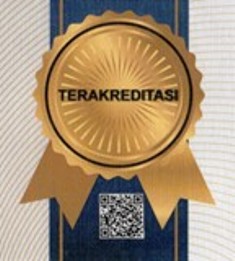Analysis of Communitybased Aspects as Social Education For Successful Management of Cultural Tourism Objects After the Covid 19 Pandemic in Bireuen Regency, Aceh Province
DOI:
https://doi.org/10.24036/sjdgge.v6i2.411Keywords:
Cultural Tourism Objects, Community Based, COVID-19 PandemicAbstract
This study seeks to examine community-based aspects as social education for the success of managing cultural tourism objects after the COVID-19 pandemic. The type of research used is descriptive qualitative research. Informants in this study are key informants, namely managers of cultural tourism objects, geucik, visitors and the community around cultural tourism objects. Informant retrieval technique using snowball sampling technique. Data collection techniques include observation, interviews, and documentation. Data analysis uses data reduction, data display, and drawing conclusions. The results of the study found that the community-based aspect as a successful tourism object management strongly supports the sustainability of tourism in Bireuen district both in terms of the role of outsiders, justice, conflict resolution, empowerment, knowledge and awareness, and sustainable use. In addition, the need for collaboration in the development of cultural tourism objects that are effective in advancing a common vision in the development of cultural tourism objects in a sustainable manner. One of the recommendations is that the authorities should pay more attention to the implementation of better tourism policies and services and maximize the benefit of local communities.
Downloads
References
[2] Yoeti, Oka A, 2008. Perencanaan dan Pengembangan Pariwisata. Pradnya. Paramita: Jakarta
[3] Spillane and James, J. Ekonomi Pariwisata Indonesia, Sejarah and Prospeknya. Yogyakarta: Kanisius. 1987.
[4] Salama, Mansour. H. 2022. The Impact of Covid-19 Pandemic on Green Hotel Management. African Journal of Hospitality, Tourism and Leisure. ISSN: 2223-814X.
[5] Sun, X., Su, W., Guo, X. & Tian, Z. (2021). The Impact of Awe Induced by Covid-19
Pandemic on Green Consumption Behavior in China. International Journal of
Environmental Research and Public Health, 18(2), 543-560.
[6] United Nations World Tourism Organization. Impact Assessment of The Covid-19 Outbreak on International Tourism. Available at https://bit.ly/36 gm4hM. [Retrieved
September 03, 2020].
[7] Jiang, Y. & Wen, J. (2020). Effects of Covid-19 on Hotel Marketing and Management: A
Perspective Article. International Journal of Contemporary Hospitality Management,
32(8), 2563-2573.
[8] Department of Culture and Tourism, (2016). Pedoman Kelompok Sadar Wisata. Jakarta:
Kementrian Pariwisata.
[9] Chun-Yi, H., Bi-Huei, T., Chiao-Shan, C. & Ming-Tsang, L. (2021). Exploring Green
Marketing Orientations toward Sustainability the Hospitality Industry in the Covid-19
Pandemic. Journal of Sustainability, 13(4348).
[10] Yustisia, K., Rudy, P. & Reagan, B. (2021). Adaptation Strategy of Tourism Industry
Stakeholders During the Covid-19 Pandemic: A Case Study in Indonesia. The Journal of Asian Finance, Economics, and Business, 8(4), 213-223.
[11] Šerić, M. (2021). Sustainability in Hospitality Marketing during the Covid-19 Pandemic. Content Analysis of Consumer Empirical Research. Journal of Sustainability, 13(18).
[12] Moleong, L. J. (2007). Metodelogi Penelitian Kualitatif Bandung: PT. Remaja Rosdakarya.
[13] Sugiyono. (2017). Metode Penelitian Kuantitatif, Kualitatif, dan R&D. Bandung: Alfabeta.
[14] ASEAN. 2015. ASEAN Community Based Tourism Standard. Cambodian Ministry of Tourism. Phnom Penh, Cambodia.
[15] Pomeroy, Robert S, Brenda M. Katon, Ingvild Harkes 2001, ‘Conditions Affecting the Success of Fisheries Co-management: Lessons from Asia’, Marine Policy, 25: 197-208.
[16] Aharon, D.Y., Jacobi, A., Cohen, E., Tzur, J. & Qadan, M. (2021). COVID-19, Government Measures and Hospitality Industry Performance. Journal of PLoS ONE, 16(8).
[17] Julia, M., Albert et.all. 2016. Social Media Self-Effcacy of Health Education Specialist s, Health Promotion Practice 17, No. 6: 915-921.
[18] Keller, Stephen R, Jai N. Mehta, Syma A. Ebbin, and Laly L. Lichtenfeld 2000, ‘Community Natural Resources Management: Promise, Rhetoric, and Reality’, Society and Natural Resources, 13: 705-715.
[19] Budiati, Lilin 2012, Good Governance dalam Pengelolaan Lingkungan Hidup, Ghalia Indonesia, Bogor.
[20] Thomas, L. & Middleton, J. (2003). Guidelines for management planning of protected areas. United Kingdom: Cardiff University.
[21] Borrini-Feyerabend, G. (1996). Collaborative management of protected areas: tailoring the approach to the context, issues in social policy, IUCN, Gland (Switzerland).
[22] Kenney, D.S. (2000). Arguing About Consensus: examining the case against western watershed Initiatives and other collaborative groups active in natural resource management. Natural Resources Law Centre, University of Colorado: Boulder.
[23] Camacho, A. E., Susskind, L. E. & Schenk, T. (2010). Collaborative planning
and adaptive management in Glen Canyon: A Cautionary Tale. Columbia Journal of Environmental Law. 35(1).












